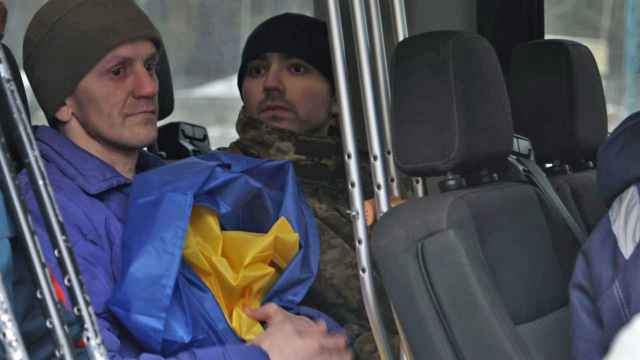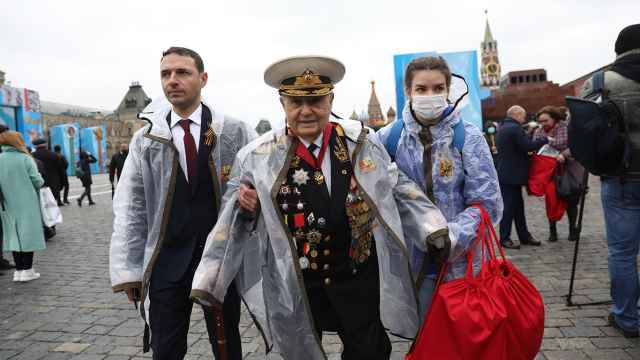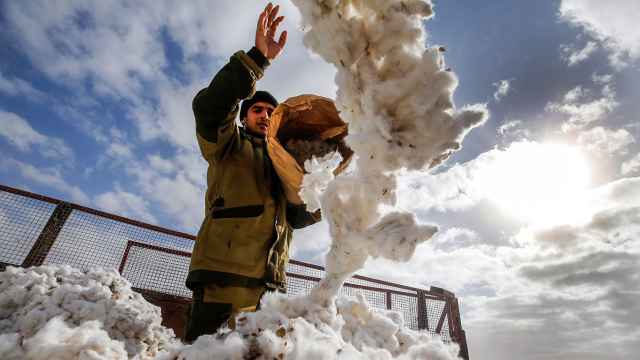GENEVA — Russia has finalized an agreement on joining the World Trade Organization and is expected to become a member in the first half of 2012.
To join, it had to promise to open up its service sectors to foreign firms and to give foreigners and Russians equal treatment. However, it negotiated limits and conditions in many areas, set out in a 73-page schedule.
The following are key excerpts from the draft services schedule dated Oct. 19, which has been obtained by Reuters. It has not been made public but has been circulated among WTO diplomats.
This list is not exhaustive. In many areas, Russia has been allowed to keep complete discretion over policies affecting service sectors, and has retained almost entirely the right to restrict foreign citizens entering Russia.
1. RESTRICTIONS ON NON-RESIDENTS SUPPLYING RUSSIA
- Russian firms can have priority in working as contractors for production-sharing agreements.
- Foreign ownership is barred for agricultural land and border region land, but foreigners may rent for up to 49 years (extendable). Other types of land ownership may be restricted.
- Foreign architects must work with a Russian-licensed firm.
- In satellite communications, foreign firms may provide only fixed satellite services to Russian firms for the first 3 years after Russia joins the WTO. After 3 years, any type of satellite services is permitted.
- Russia may introduce a state monopoly on ethyl alcohol and alcoholic products, which would affect both Russian and foreign suppliers.
- Foreigners and foreign entities may only trade on Russian commodity exchanges via brokers, unless they are floor traders.
- Insurance of domestic commercial air transportation and maritime transportation will not be fully open to foreigners in the first four years after Russia joins the WTO.
- Foreign insurance brokers may not sell insurance in Russia on behalf of foreign companies.
2. RESTRICTIONS ON RUSSIAN RESIDENTS BUYING SERVICES FROM ABROAD
None, except as above.
3. RESTRICTIONS ON FOREIGN SERVICE SUPPLIERS SETTING UP IN RUSSIA
- May not do any commercial activity via representative offices. Representative offices may have a maximum five foreign staff (two for banks).
- May not be eligible for subsidies and state support, and only via a Russian legal entity.
- Must respect monopoly status of some Russian services that have been classified as national or local public utilities.
- May be restricted in privatization sales.
- Foreigners entering the security and investigative sectors need prior authorization.
- Founders of mass media agencies cannot be foreigners.
- For four years after Russia joins the WTO, foreigners may not hold more than 49 percent of voting shares in 15 incumbent telecoms companies and seven regional operators.
- Foreign tour operators must have five years' experience in their home market before they can operate in Russia.
- Foreign share ownership in outbound/inbound tourism will be limited to 49 percent for seven years (unless it is already more than that when Russia joins the WTO).
- Only Russian citizens can work as tour guides.
- Foreigners cannot hold more than 25 percent of the capital of air transportation companies established before Russia's WTO entry.
- For five years after Russia joins the WTO, insurers with more than 51 percent foreign ownership (or 49 percent for reinsurers) will not be allowed to offer life insurance or car insurance. Foreign-controlled insurers can continue to operate if they were already licensed in Russia before WTO accession.
- Foreign life and non-life insurers will be allowed to set up Russian branches only nine years after Russia joins the WTO. Branches must be separately capitalized and may not be allowed if foreign equity share in the insurance market exceeds 50 percent.
- Foreign insurers must have assets of $5 billion and have five years of operating history (or 8 years for life insurance).
- Foreign capital in the Russian banking system is limited to 50 percent overall.
- Prior authorization is needed to set up a foreign-invested credit organization or for non-residents to invest in such organizations.
- For 3 years, non-residents may not hold more than 25 percent of votes in investment funds and non-state pension funds (unless they already do at the time Russia joins the WTO).
- Non-residents may not hold more than 25 percent of votes in securities markets participants involved in depository operations made through a trade arranger (unless they already do at the time Russia joins the WTO).
- Only Russian legal entities can participate in clearing on the securities market.
- Many business sectors, from hairdressing to movie rentals, are only open to foreigners via a Russian legal entity.
- Some businesses, such as retailing or pharmaceutical wholesale, require further authorization, both for Russians and foreigners.
4. RESTRICTIONS ON FOREIGNERS COMING TO RUSSIA TO SUPPLY A SERVICE
- Foreign companies can send senior staff for assignments of up to three years (extendable) or company representatives on business visits of up to 90 days.
- Foreigners are not eligible for subsidies and other forms of state support that are available to Russian citizens.
- Eighty percent of employees in a production-sharing agreement must be Russian citizens.
- Foreigners need a Russian qualification to work as a chief accountant, auditor or advocate.
- Foreign-led auditing firms must have 75 percent Russian staff.
- Only Russian citizens may maintain and repair rail transportation or load and unload rail cargoes.
- Only Russian citizens may work as bus, coach, truck or taxi drivers (unless the route crosses an international border).
A Message from The Moscow Times:
Dear readers,
We are facing unprecedented challenges. Russia's Prosecutor General's Office has designated The Moscow Times as an "undesirable" organization, criminalizing our work and putting our staff at risk of prosecution. This follows our earlier unjust labeling as a "foreign agent."
These actions are direct attempts to silence independent journalism in Russia. The authorities claim our work "discredits the decisions of the Russian leadership." We see things differently: we strive to provide accurate, unbiased reporting on Russia.
We, the journalists of The Moscow Times, refuse to be silenced. But to continue our work, we need your help.
Your support, no matter how small, makes a world of difference. If you can, please support us monthly starting from just $2. It's quick to set up, and every contribution makes a significant impact.
By supporting The Moscow Times, you're defending open, independent journalism in the face of repression. Thank you for standing with us.
Remind me later.





